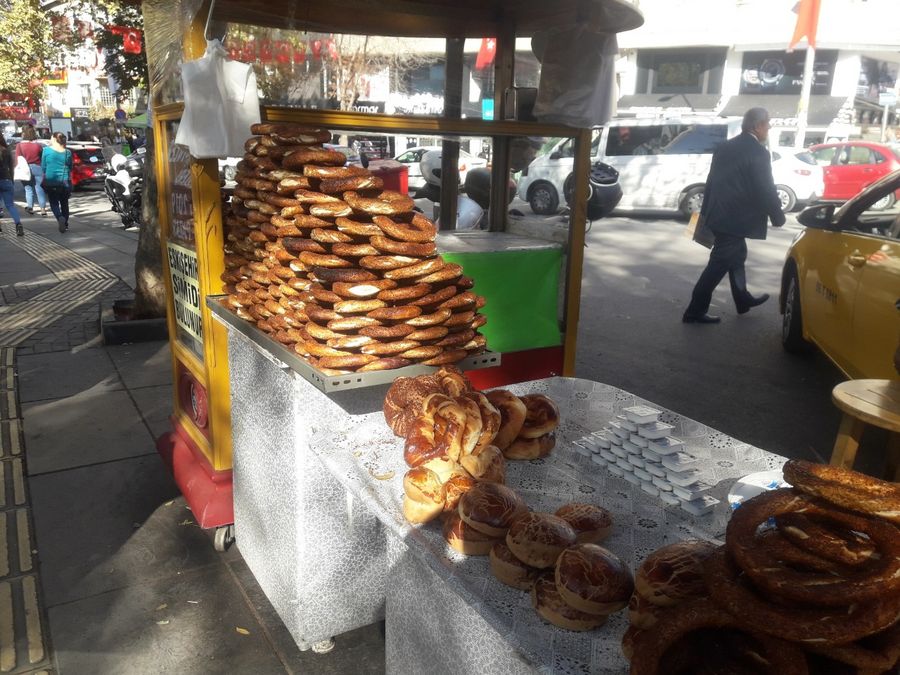
A stand selling simit near the Swan Park at the entrance of Tunali Hilmi Avenue in Ankara, Turkey. (Xinhua/Burak Akinci)
Simit, also called "Turkish bagel", a bread ring made of flour, salt, sesame seed and grape molasses, is included in Oxford English Dictionary with int'l recognition.
by Burak Akinci
ANKARA, Nov. 1 (Xinhua) -- Simit, a bread ring encrusted with sesame seed, is perhaps the best known delicious street food in Turkey.
Last week, simit made its way into the Oxford English Dictionary and gained an international recognition.
Widely known as "Turkish bagel," simit has entered the famous dictionary with other food names around the world, with the definition saying "a type of bread often coated with molasses and covered in sesame seeds, originating in Turkey."
The official entry of the word into the English dictionary was hailed by Turkish social media users who considered the decision as the reflection of a growing influence of the Turkish gastronomical culture in the changing world.
Traditionally, the simit dough is made of flour, water, yeast, and salt, then dipped in water and grape molasses to color it deep brown and add a hint of sweetness, and finally rolled in sesame seeds before baking after a series of handmade twists.
Although quite similar in appearance, simit isn't cooked like bagels, not boiled but baked, making it crispy not chewy, with a golden texture and color because of the molasses.
Simit is the most common street snack in Turkey which best matches at breakfast with a thin belly glass of hot strong black Turkish tea, cream cheese and sometimes olives.
It has become over centuries a staple of daily life across the country where there are various styles and types according to different cities.
Simit is the cheapest way of filling your stomach in Turkey and is usually sold by street vendors walking a long way each day with a simple tray holding the freshly baked snacks skillfully balanced on their heads, shouting "Sicak simit (warm simit)."
In Ankara's busy Tunali Hilmi Avenue, a popular and lively merchant street, a more hygienic glass-covered container and trays filled with piles of fresh and delicious crispy simit welcomes passers-by.
"We sell around 1,500 simits a day. People really like buying the food here and eat it in the park," said Mehmet, the vendor, to Xinhua.
He was referring to the nearby Swan Park, a popular meeting place loved by Ankara residents, especially by children who can see swans swimming lazily in an artificial lake while feeding pigeons.
Mehmet said he was not aware of the Oxford inclusion of his produce as he is busy paper-wrapping simit for his clients. "I didn't know, but foreigners and tourists also buy our simit here, so I suppose they must know it too," he said.
Simit is not only sold on the streets, but also sold at pastry shops and cafes where you can order it at family brunch gatherings.
The history of the popular bread can date back to the 14th century. Historians say that the first record of the word "simit" was found in Bursa, the first capital city of the Ottoman Empire located in northwestern Turkey.
On the Tunali Hilmi Avenue, there are several other simit stands, authorized by the municipality. One of them is owned by Icali Ertas, a 70-year-old pensioner, who has been helping his disabled son in the past five years to run the humble business.
"We don't sell much, maybe around a hundred a day if it's a good day," said the old man, pointing out that the location of each vendor is essential to have a good client base. ■



